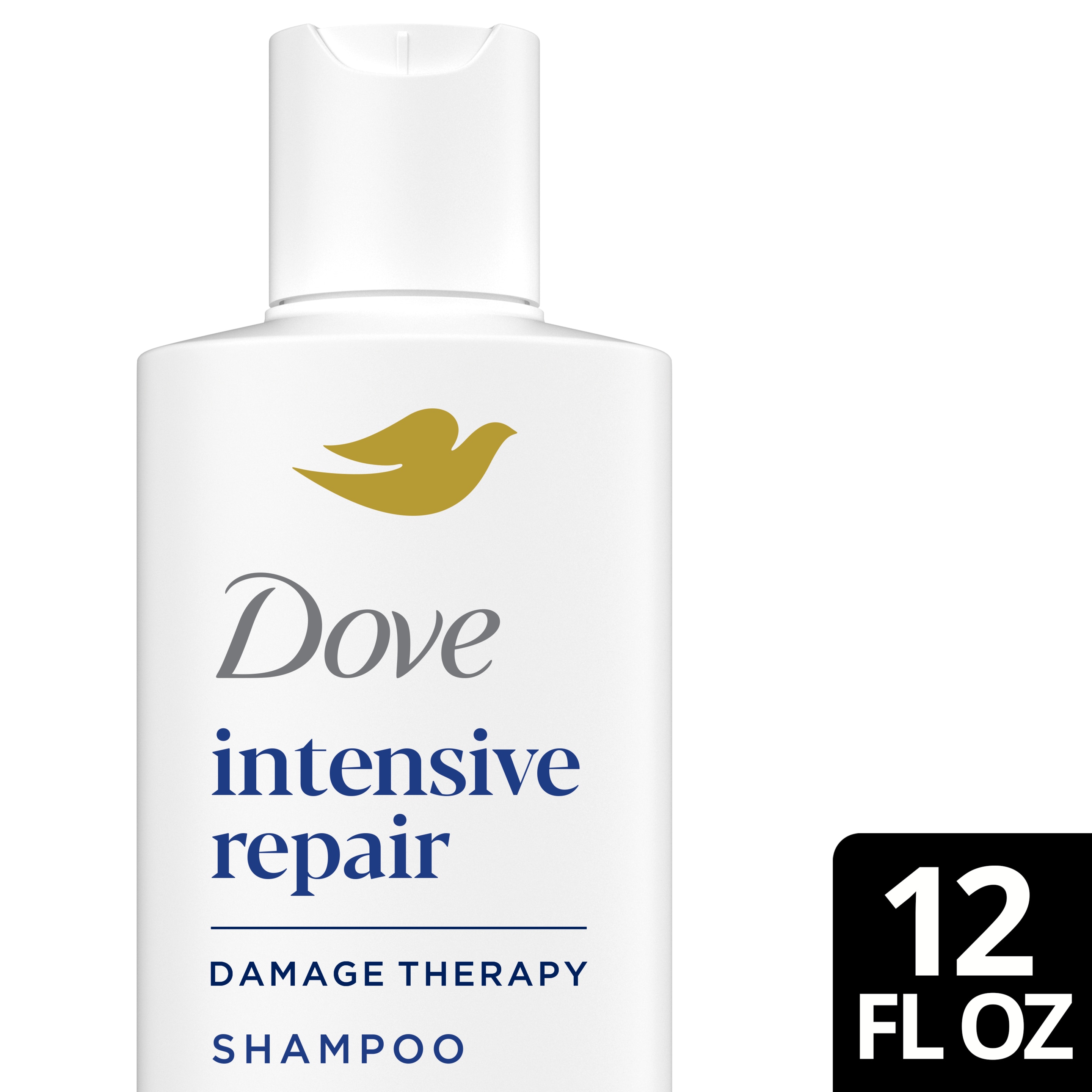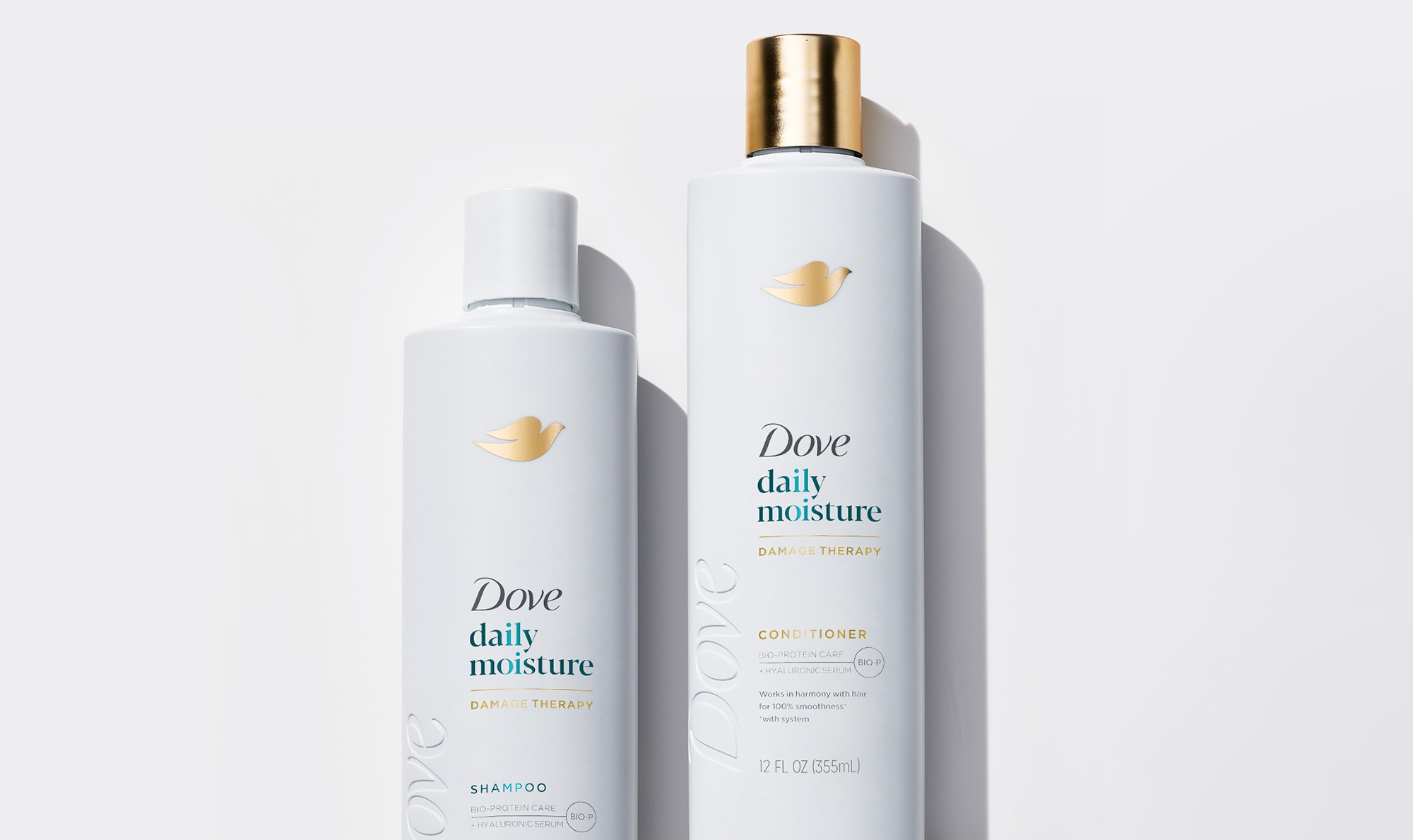What exactly is a split end?
It’s all in the name: if a strand splits off into two at the tip, you’ve got yourself a split end. But why do they happen in the first place? It’s all down to the wearing away of the hair’s protective cuticle layer. In layman’s terms: damage. Heat, chemicals, and friction from brushing and styling all compromise the hair’s outer lipid layer, exposing the fiber and leaving it vulnerable to the loss of essential moisture and proteins. Once these things are depleted, fraying ends are a symptom of the breakage that follows.
What causes different types of split ends
Yep, you heard us right, there’s not just one type of split end. Your basic split separates off into two, but other types include triple splits and feathering (so, multiple splits on one strand). The difference is often down to how advanced the damage is.
It’s not all about trimming to avoid split ends. Dove Intensive Repair Shampoo and Conditioner stops 98% of daily hair damage*.
Or try Dove Damage Therapy Bond Strength Shampoo and Dove Damage Therapy Bond Strength Conditioner. They repair split ends and keep them feeling smooth and will also prevent split ends from forming in the first place. This means you won’t need to have your hair trimmed as often.
You can prevent existing splits from traveling further up the hair shaft by applying a leave-in product designed to visibly repair signs of damage, such as Dove Damage Therapy Bond Shield 10 in 1 Super Serum. Sleeping on a silk pillowcase, turning your shower temperature down and avoiding hair accessories that tug and catch are other small changes you can make to keep your strands split free.
Causes of split ends in natural hair
Black hair tends to be drier, so considering dehydration is a contributing factor when it comes to frayed ends, this hair type is more prone to them. The risk is also heightened if you’ve spent years chemically straightening or flat-ironing your hair, as extreme heat is one of the main causes of cuticle damage.
The advice is the same for all hair types: get regular trims to prevent splits from worsening (some experts even offer hot-scissor trims to seal the cuticle). Textured-coily hair types will benefit in particular from regular hair oiling to replenish moisture and nourishment and keep strands soft and supple – try scheduling one in the night before your next hair-wash.
*due to breakage vs non-conditioning shampoo









